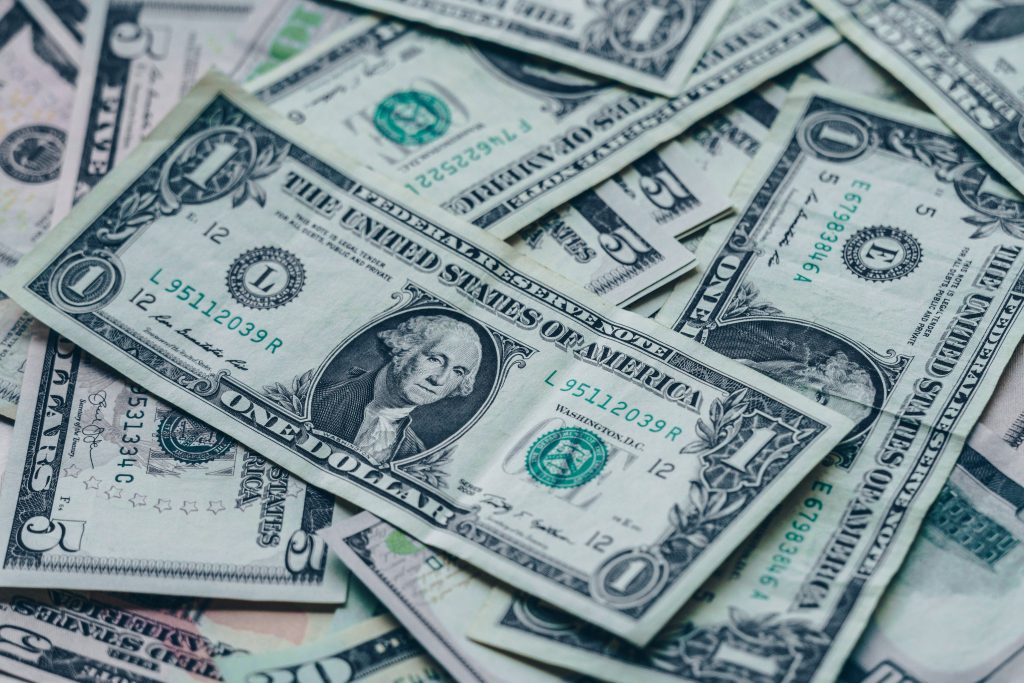Bill Prohibits ‘Cashless’ Businesses in Wisconsin
For any transaction of less than $2,000. City of Milwaukee supports state bill.

Cash. (CC0)
Wisconsin businesses would be required to accept cash under a bipartisan proposal in the state Legislature.
The bill would prohibit establishments from being “cashless” for any in-person retail transaction of less than $2,000. Retailers could be fined between $200 and $5,000 if they don’t accept cash as payment.
At a public hearing on the plan Tuesday, Schraa said people who don’t use credit cards or banks are disenfranchised at establishments — including Lambeau Field — that don’t take cash. He also argued that moving away from cash encourages people to incur credit card debt.
“I go back to what’s written on every single dollar bill: ‘This note (is) legal tender for all debts, public and private,'” he said. “It is Wisconsinites who should make the choice to use paper money or plastic cards and not businesses.”
According to the Pew Research Center, use of cash is on the decline. About 41 percent of Americans use no cash for purchases in a typical week, up from 24 percent in 2015. Some small businesses argue that declining to use cash is safer and lowers labor costs.
But opponents of entirely cashless businesses say that they disenfranchise people who don’t use banks, including young people, certain religious communities and low-income people.
Philadelphia, New York and Washington, D.C. have implemented similar bans on cashless establishments.
Two Milwaukee Democrats have so far signed onto Schraa’s bill and the city of Milwaukee has registered in support.
Listen to the WPR report here.
‘Cashless’ establishments would be barred in Wisconsin under bipartisan bill was originally published by Wisconsin Public Radio.
If you think stories like this are important, become a member of Urban Milwaukee and help support real, independent journalism. Plus you get some cool added benefits.






















Rep Michael Schraa wants to make businesses follow the dictates of the state rather than allowing businesses to have the freedom to serve their customers in the best way possible. There is no federal law requiring cash; nothing about the motto on the currency has anything to do with requiring cash transactions. Allow businesses to decide how to accept payment. A debit card or digital wallet payment is often safer and better for all parties. There are many ways that people can get banked through the BankOn initiative and use safe debit cards without overspending. Consumers can choose, and many businesses may still take cash to serve people who need that. It is Wisconsinites who should make the choice to use paper money or plastic cards and not the state government.
This ban is not going to prohibit bank cards or digital wallet payments, Mr. December, and most customers will continue paying that way. It will however, increase options for consumers. The BankOn initiative you reference sounds fine, but there are demographics that will remain excluded (kids, elderly, non-English speakers, the technologically impaired, etc). Moreover, those of us worried about privacy and the corporate world’s incessant data harvesting about our every move prefer cash. This is about freedoms for the people, and the state government (of the people, by the people, for the people) helping safeguard these freedoms. I hope the bill advances.
It is easy for well-off people to pay with digital methods. Many people have no access to them.
I have noticed a number of businesses I frequent offering discounts for paying with cash. Digital and credit card payments are not free to a business.
David Coles is correct.
A restaurateur friend asked me one night if I would use Visa instead of Amex as the latter charged him a 4% fee vs 3%. To put it plainly, if every customer used Amex in a given day, that is an additional 1% of his total sales gone than if every customer used Visa, and 3-4% if they paid cash.
This bill died in the Assembly this spring. I have called every author and sponsor on the bill to voice my support for its reintroduction during the next legislative session.
Businesses that call the United States their home should be required to accept United States currency.
When I see a sign that says “we’re cashless!” All that says to me is “we’re classist!!” “We don’t want the business of the subset of society that doesn’t have access to, or chooses not to use, credit cards or smartphones!” “This keeps the dirty riffraff out!”
It is fundamentally un-American in my opinion, that a US citizen can scrounge up enough money to buy a sandwich, but then be turned away by an appalling open display of pure classism, all under the guise of “safety and efficiency”.
This bill had bipartisan support in the Assembly and bipartisan Senate consponsors. I look forward to its reintroduction and subsequent passing so that the playing field for all citizens is once again equal, in terms of their access to participate in our economy by means of our federal currency.
It is absurd to suggest a business should have the “freedom” to not accept cash. Move to a different country, or go completely online, if your business doesn’t want to accept the currency of the people. This is what I call a “come to work” basic if you’re going to operate a business in the US.
Wouldn’t this just be skirted by moving the Square Terminal to the front of the line and calling it self-checkout? Boom! Don’t have to change hardly anything to comply with the law and can fire a cashier!
Everytime a purchase is paid for with plastic a bank makes money. I always pay with cash.